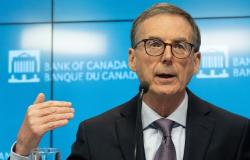Recently, I traveled to Montreal, where Canada hosted the 70e Annual session of the NATO Parliamentary Assembly. Here, parliamentary representatives from across NATO met, discussed and debated the pressing needs of the alliance in the years to come. At the forefront were discussions about the Arctic.
Climate change is not only altering the physical landscape in the region, but also changing the diplomatic power dynamics that Canada has enjoyed for decades. Melting glaciers caused by a warming Arctic are having an increasingly disruptive effect on Europe’s climate and water flows. Potential access to the natural resources needed to power the coming century has prompted an increased presence from traditional Arctic powers, such as Russia, but also from new players such as China, which has declared itself a power “near the Arctic”. These changes have disrupted the balance that Canada has relied on for decades and require us to review our approach to the Arctic, which will require significant defense spending in the decades to come.
Until recently, Canada could rely on soft power to establish sovereignty in the Arctic. The Arctic Council was a central part of this and provided a forum where Arctic nations could coordinate and discuss their differences. However, since Russia’s invasion of Ukraine, the future of the Arctic Council has been called into question. This symbolism is difficult to overestimate.
The council, in its formation, deliberately excluded any reference to the army and defense in its mandate. Since the pause two years ago, Sweden and Finland have joined NATO, meaning that all members of the Arctic Council, except Russia, are now members of this military pact.
This sets the stage for a more bellicose century in the Arctic, where Canada’s military presence will need to be strengthened – not only for Canada to demonstrate its sovereignty, but also for it to be seen as a reliable ally for allies. Arctic and NATO as a whole. This comes at a time of mounting accusations within the NATO alliance that Canada is not doing its part, accusations coming primarily from the incoming administration in Washington, which has made no secret of its desire to see Canada strengthen its defense capabilities in the region.
This new situation presents both a challenge and an opportunity. A presence is not just limited to people on the ground and boats at sea, but also permanent infrastructure. Big investments like the NORAD renewal make headlines, but too often, when it’s time to take action, government investment in the region seems like a box-ticking exercise rather than a real investment. what this country needs for decades to come.
One need look no further than the abandoned mining town of Nanisivik to see this in practice. In 2007, the government announced that the site would be converted into a deep-water port and naval facility. Originally planned for use in 2015, the site fell nearly a decade behind schedule and was significantly scaled back. A 2022 report from Canada’s Auditor General found that the Nanisivik naval facility will not be equipped with heated fuel tanks, limiting its operating period to four weeks per year. According to the report, the facility will therefore not be able to effectively support Canadian ships operating in the Arctic and, for most of the year, ship replenishment will continue to be “dependent on commercial options or the cooperation of allies.” “.
“The Navy is therefore exposed to the risk of not being able to refuel its ships where and when it needs it,” underlines the report.
Half-measures like those we saw at the Nanisivik site harm our standing with our allies and will contribute to the impression that Canada cannot effectively secure its territory. We cannot defend our Arctic territory – which represents almost 40% of the territory and 75% of the coastline – without the cooperation of our allies. But these partnerships are two-way and require commitment on our part.
This commitment must be translated into tangible assets in the region, which will allow Canada to count on its partners and to be a reliable ally in return.
Senator Marty Deacon represents Ontario and is a member of the Canadian NATO Parliamentary Association. She serves on the Senate Committee on National Security, Defense and Veterans Affairs and the Senate Committee on Foreign Affairs.
This article was published on December 2, 2024 in the Hill Times (in English only).





